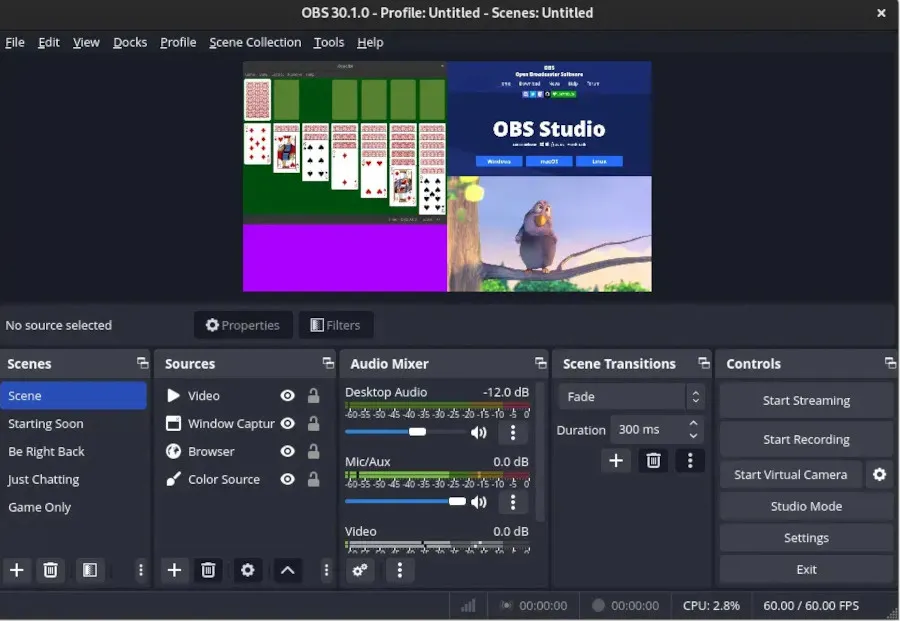
Image: OBS Studio
Even open-source projects like OBS Studio and Fedora Linux can find themselves embroiled in legal disputes. This case serves as a reminder that intellectual property protection remains crucial, even within the open-source ecosystem—otherwise, dealing with uncooperative downstream projects like Fedora Linux can become a significant challenge.
The OBS project maintainers have officially requested that Fedora Linux remove all references to its brand name, logo, and any other intellectual property associated with OBS Studio from Fedora Flatpak. Should Fedora fail to comply, OBS has threatened legal action.
The conflict arose due to Fedora Flatpak, Fedora Linux’s universal package management system, which offers various software packages for download and installation. However, Fedora has not explicitly disclosed that some packages may originate from unofficial sources.
Take OBS Studio as an example—the OBS Studio Flatpak package on Fedora Flatpak appears to be improperly packaged and riddled with critical errors. This has led to user confusion, with many believing they were using the official package and subsequently blaming the OBS project for malfunctions and bugs.
In response to these issues, OBS has requested that Fedora Flatpak either remove the faulty package or clearly label it as unofficial. After all, ensuring the proper functionality of downstream software packages is not the responsibility of the upstream developers—especially when Fedora Flatpak is actively overriding the official OBS package.
OBS has reached out to Fedora Flatpak demanding the package’s removal, but instead of complying, Fedora seemingly responded with hostility, further frustrating the OBS team. As a result, OBS has now classified the OBS Studio Flatpak on Fedora Flatpak as a malicious fork.
Despite being an open-source project, OBS still retains intellectual property rights, including its name and logo. This gives OBS the legal standing to demand the removal of all unauthorized Fedora-distributed content related to OBS Studio. If Fedora refuses, OBS is prepared to escalate the matter through legal channels.
OBS is not the only project affected by Fedora Flatpak’s practices. Other developers have also raised concerns that Fedora Flatpak provides unverified software packages rather than distributing officially sanctioned versions. This not only leads to installation and usability issues, as seen with OBS Studio, but also introduces potential security risks—a growing concern in software distribution.
Related Posts:
- Fedora starts to support Google Chrome and Steam
- Fedora 26 will reach EOL on June 1
- Fedora 28 Beta Released, Introducing New Features Modular Repository